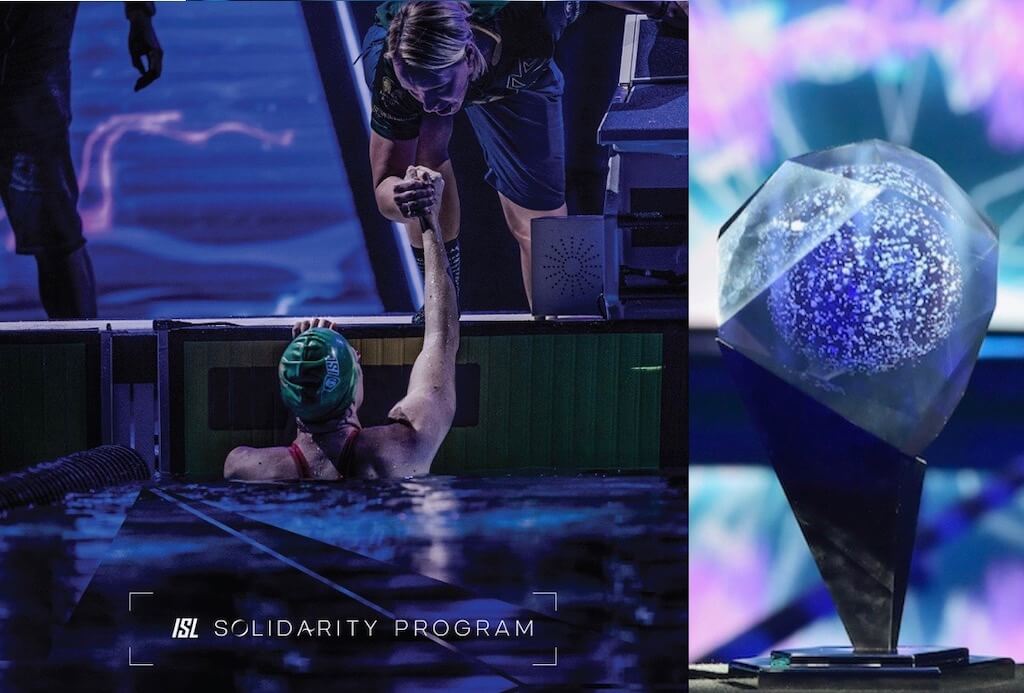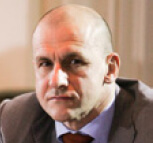International Swimming League Solidarity: $11m Lifeline For Swimmers In Corona Crunch

- International Swimming League Solidarity Program to pay swimmers first regular wage in their sport: 320 athletes to receive $1500 a month
- $11m set aside for wages, bonuses and prize money
- All 10 ISL teams, swimmers, coaches and support staff invited – at ISL expense – to 5-week solidarity camp in October-November for training and competition as a catalyst to reunite the world swimming community
- Reality TV concept for the camp may have commercial spin-offs to further help fund swimming and swimmers at a time when subsidised funding of the sport may take a hit because of the economic downturn caused by the pandemic
The International Swimming League (ISL) today throws a lifeline to swimmers facing uncertainty and even the prospect of forced retirement from the sport due to the coronavirus (COVID-19) pandemic.
In a letter (in full at the foot of this article) sent to the 320 athletes, their coaches and managers at the 10 ISL teams, the League, founded and funded by businessman Konstantin Grigorishin, announces a Solidarity Program in which each swimmer will receive a guaranteed $1500 wage for 10 months between September and July next year to tide them over a time of challenge.
Grigorishin told Swimming World that the measure is designed to help “save the sport … prevent premature retirements”.
The 30 ambassadors for the League, including the likes of Katie Ledecky, Adam Peaty, Caeleb Dressel, Sara Sjostrom, Chad Le Clos, Katinka Hosszu and Sarah Sjöström, will receive between $3,500 and $5,000 a month for the same 10-month period.
Summing up the wages at $6m, Grigorishin tells Swimming World:
“This is nothing if you’re taking soccer or basketball but it’s a big deal in swimming.”
A level to keep swimmers in swimming? “This is our main goal,” says the ISL founder.
The ‘wages’ part of the package may be extended beyond next July “if we are commercially successful”, he added, noting that a further $5m had been allocated to prize money during a training and competition camp to be help over five weeks in October and November, coronavirus pandemic pending.
More from Konstantin Grigorishin in due course.
Our Coverage:
- ISL Swimmers React to Solidarity Program: New Life for Amy Bilquist, Justin Ress, Others
- Caeleb Dressel A Condor Confined To Nest Now Craving Breeze Back To League Of High Flyers
- Katinka Hosszu: ISL Support Will Enable All Swimmers To Continue Into 2021
- Georgia Davies: ISL Support Will Be Invaluable And Allow Athletes To Fully Focus On Training
Australian Cate Campbell, a senior on the London Roar squad, said:
“This is going to be a lifeline for swimmers, not just in Australia but all around the world. No-one has said it yet, but let’s be honest, the writing’s on the wall that funding cuts are going to happen and for a lot of swimmers on the cusp of representing their countries, that might mean they have to give up their dreams. This will also give everyone a little bit of insight into what it’s like to be a swimmer and their personalities and what an average training day looks like, because we kind of exist a little bit in the dark.
“That’s going to be so important for the sport moving forward because corporate dollars and sponsorship dollars are going to be so scarce in the years to come.”
The Swimming Reality and Reunification Camp
A condensed ISL Season II will have a twist.
All 10 teams, 320 swimmers and their coaches have been invited to attend a five-week training-and-competition camp in October-November this year. The dates will be adjusted if the coronavirus pandemic demands.
The subsidised reunification of the swimming family will include an ISL-format competition each weekend, with 10 teams competing in matches of four teams at a time. Innovations for the coming season include skins on all strokes – back-to-back races which operate on a knockout basis with the two remaining swimmers racing in a head-to-head final, split-time events and a 100m medley added to the program.
The eight existing teams in the League from last season were each allowed to keep eight athletes without risk of them being ‘poached’ by other teams. The closest thing so far to a ‘transfer window’ in swimming meant a month or two during which swimmers could switch teams. The two new teams joining the party this season, in Japan and Canada, were even a month in which to recruit their 2020-21 rosters.
Depending on coronavirus developments, the final match in the condensed 2020 series would either be held on the last weekend of the camp or about a month or two later somewhere else in the world, London among cities to have expressed an interest, with the cusp of Christmas among options on the calendar.
Among venues being explored for the camp are Australia, Budapest, Japan and Florida. Australia and Japan are the front-runners for the time being.
The cost of the camp and the related competitions will swell the ISL’s investment to more than $20 million as a solidarity measure on the way to a full season in 2021-22. More details to follow.
Grigorshin, founder of the ISL and the billionaire behind the Pro-Swim revolution, said:
“Our approach is we consider athletes as our partners so before we made this decision we asked them what they wanted and this is what they told us, so it’s a swimming camp, it’s a competition and it’s a reality show all rolled into one.”
James Gibson, head coach to the Energy Standard squad and the ISL team that lifted the inaugural League Trophy in Las Vegas last December after a tight tussle for supremacy with London Roar, summed up the mood among many in the League with this Instagram post:
The Remote Reality TV Concept Fit For Sport In Coronavirus Season
The training and competition camp will place swimmers, coaches and others in a remote location without the need for a crowd, TV coverage allowing a global audience to tune in to the weekend matches. Expect commercial spin-offs to flow: sort of “I’m A Celebrity, Get Me Out Of Here!” in reverse and with athletic purpose, solidarity, support, goals, wages, fun and entertainment in the mix.
- Imagine the draw: Caeleb Dressel, Katie Ledecky, Adam Peaty, Lilly King, Florent Manaudou, Sarah Sjostrom and many more in swim village-plus.

Konstantin Grigorishin Photo Courtesy: ISL
Great rivals in the water, the swimmers will all live, train and eat together with everything being filmed for a global reality documentary series, similar to cricket’s fly-on-the-wall series The Test and Formula One’s Drive To Survive. Grigorishin said:
“We want to show people who the swimmers really are. They are not just robots standing on the blocks and swimming for their country so we want to show their personalities. The Olympics is about two per country with lots of great swimmers never seen or heard of. We will have 320 swimmers in this program, supporting them, and we would like to extend that to 400 and more.
“You need that community of world-class athletes so that the world can see them and just how outstanding the big champions are. It’s not about them beating you and me – it’s about how they beat and face the challenge of the great athletes they’re competing with but with their long-term welfare, their development, their interests, their personalities and, yes, pensions, all considered.”
Beyond the coronavirus crisis, the ISL is planning a northern winter season for its short-course events. Yesterday, in a Swimming World exclusive, the World Swimming Coaches Association, urged FINA, the international swimming federation, to hand the northern winter to the ISL and work in partnership with the League.
Grigorishin noted the current state of play when he said:
“We’re still in litigation process in the United States and we’re negotiating with them through lawyers. We’ve won the case but now we’re waiting for some final court decision or settlement with FINA. We’re not against FINA in principle, we’re against a monopoly and against FINA’s approach to organising competitions and treating athletes. We’re not against an organisation that can regulate the sport.”
The letter to ISL Swimmers in Full:
Dear Athletes,
As you all already know, the entire world is going through undeniable challenges in relation to COVID-19 with the ISL being no exception.
We believe the athletes of ISL are its main asset and considers all of them as partners. To acknowledge this, we have decided to provide support for our athletes in 2020-2021 by implementing the ‘ISL Solidarity Program’ during which the ISL will organize a radical swimming event unprecedented in swimming history.
Through the ISL Solidarity Program each athlete that has signed or will sign a contract with an ISL Club will receive an equal amount of money per month, starting 1st September 2020 until 1st July 2021. This financial grant shall assist the swimmers during these challenging times to prepare for major events in 2021 and a full ISL season in 2021/22.
We strongly believe that the International Swimming League is the future of competitive swimming, and our program for 2020-2021 takes into consideration feedback from our athletes and coaches and respects the need for a full training preparation before summer 2021. As part of our initiative, ISL will organize later in 2020 an innovative training and competition experience for athletes and coaches for a duration of 4-5 weeks.
We propose to host all athletes in one location in a world-class facility and cover all associated expenses. All athletes involved will have the opportunity to be accompanied by their home coach.
During this period, scheduled from 14 October to 17 November, ISL will organize a commercial tournament in its revolutionary club format and add an exciting new reality concept to the production. The global exposure of this event will furthermore enhance the athletes’ profiles and increase the popularity of our sport. We strongly believe that this event, never before seen in swimming history, will serve as a demonstration of solidarity, humanity and unity of the swimming community to the entire world.
We are all in this together,
ISL



